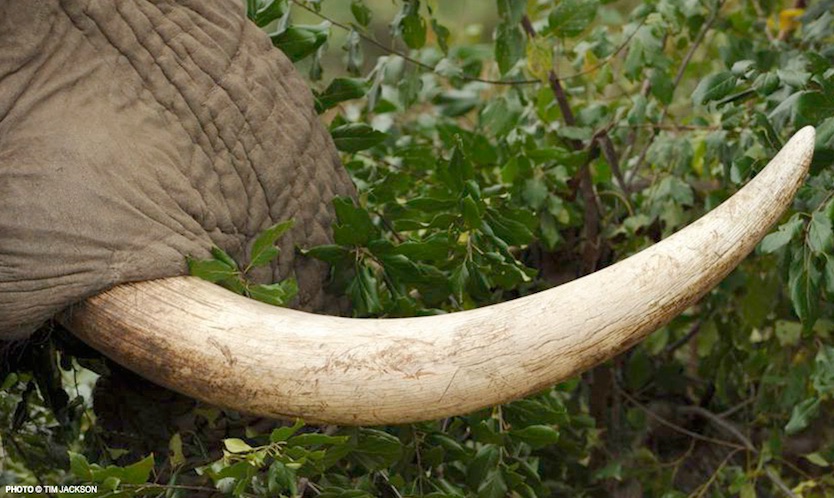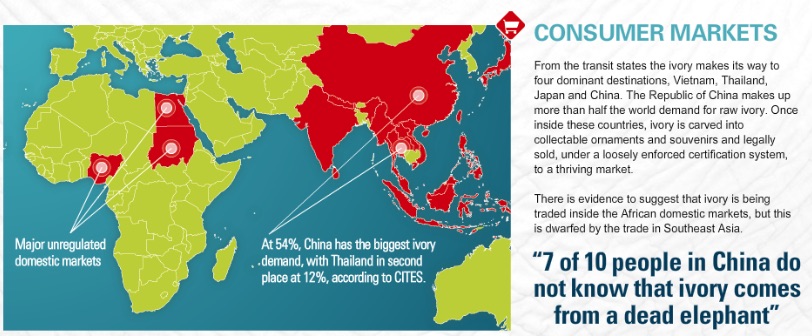By IFAW
International Fund for Animal Welfare
(Cape Town) – Sri Lanka on 26 January, 2016 destroyed its ivory stockpile of 359 elephant tusks.
Included in the stockpile which was crushed and then burned, was 1.5 tonnes of ivory confiscated in Colombo by the Sri Lankan authorities in 2012, when it was discovered concealed among wooden logs packed in shipping containers sent from Kenya. The seizure was the single biggest ever by the South-East Asian country.

The ivory crush was preceded by a multi-faith religious ceremony and, in a symbolic gesture, two tusks from poached Sri Lankan elephants were included.
“IFAW hails the decision by the Sri Lankan authorities to permanently remove the possibility of the elephant tusks from ever finding their way back onto the black market,” said Kelvin Alie, Director of the Wildlife Trade Programme of IFAW.
“Illegal wildlife trade is valued at US$19-billion annually, and ranks among the most damaging and dangerous global crimes. Destroying and putting ivory beyond use sends a very strong message to both the poachers and the cartels behind illegal trafficking that their activities cannot be tolerated.
“Up to 50,000 elephants a year are killed for their ivory every year, primarily to meet the demand for illegal ivory in Asia, particularly China and Thailand, as well as the United States and Europe and shows no sign of abating,” said Alie. The IUCN says the African elephant population currently stands at 470,000 down from 550,000 in 2006.

Alie said that Sri Lanka had joined a powerful groundswell move that in the past three years has seen 59 tonnes of ivory destroyed in countries like Chad, Kenya, Belgium, France, the US, the UK, China and Ethiopia among others.
The ivory was crushed at Galle Face Green, a popular park in central Colombo, at an event attended by the Sri Lanka President Maithripala Sirisena, Prime Minister Ranil Wickremesinghe and John Scanlon, Secretary General of the Convention on International Trade in Endangered Species (CITES).
As part of a worldwide capacity building initiative IFAW trains law enforcement officers in wildlife trafficking prevention in several countries throughout Africa, the Middle East, Asia, Oceania, and the Caribbean. The organization has signed a Memorandum of Understanding with Interpol, the first ever signed by Interpol’s Environmental Crime Programme with an NGO. IFAW and Interpol have collaborated on numerous projects since 2005 including Interpol’s largest-ever illegal ivory trade operation in 2012.
The IFAW report, Criminal Nature: The Global Security Implications of the Illegal Wildlife Trade, documents the threat the illegal trade poses to animals like elephants and rhinos, and also people. To learn more about the illegal ivory trade, download IFAW’s digital magazine Unveiling the Ivory Trade.
About IFAW
Founded in 1969, IFAW rescues and protects animals around the world. With projects in more than 40 countries, IFAW rescues individual animals, works to prevent cruelty to animals, and advocates for the protection of wildlife and habitats. For more information, visit www.ifaw.org. Follow us on Facebook and Twitter. Photos are available at www.ifawimages.com.

